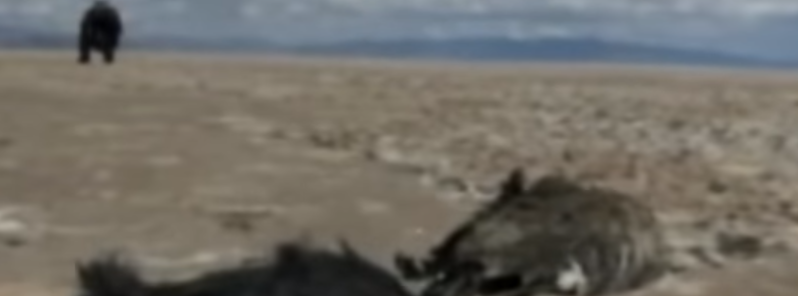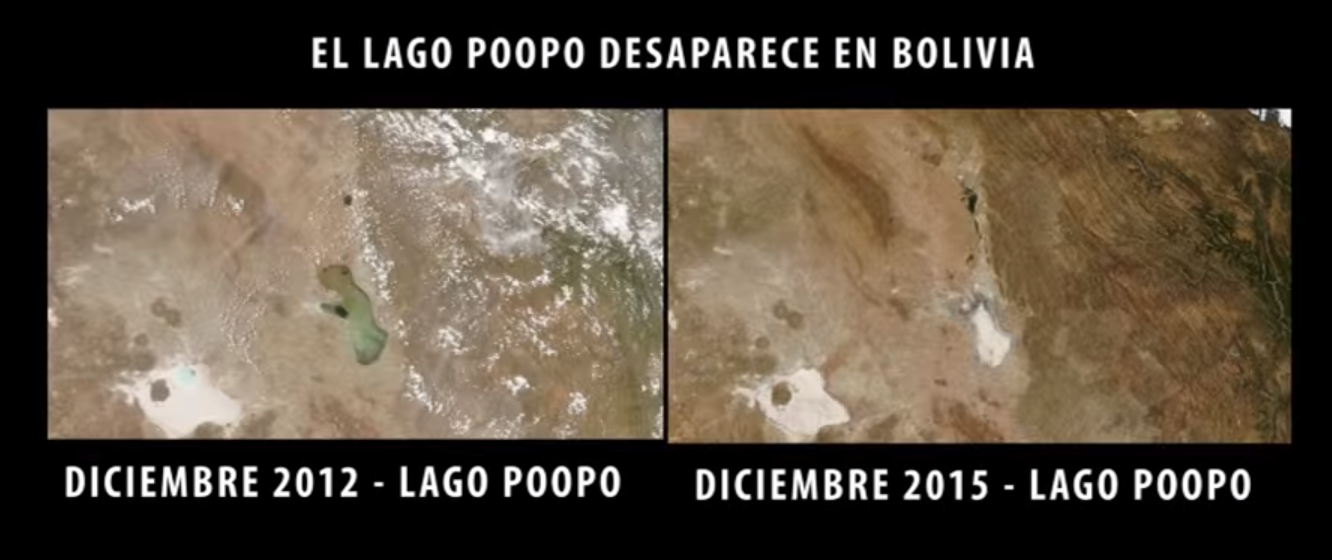Lake Poopo on the verge of drying out, Bolivia

Lake Poopo, the second largest lake in Bolivia, after Titicaca has almost dried up. The event prompted Victor Hugo Vasquez, the Governor of Oruro province to declare a state of natural disaster on December 19, 2015.
The lake which used to extend over more than 4 610 square kilometers (1 780 square miles) is currently suffering from consequences of desertification due to several factors including climate change, El Niño and mining pollution, according to Milton Perez, the agronomist of Oruro Technical University.

The current state of lake Poopo compared to its appearance in December 2012. Image credit: NASA Earth Data/Fundacion Solon via YouTube
The now "lifeless lake", the size of which has shrunken to only three small wetlands, caused about 200 wildlife species, including birds, mammals, fishes and reptiles to migrate from its habitat or die, Carlos Capriles, the ornithologist and expert in fauna of the Andean lakes explained. The current state of the ecosystem is regarded as very fragile, and Poopo's depth ranges between only 1.5 and 3.9 m (5 and 13 feet).

Video credit: Earth Data NASA/Fundacion Solon via YouTube
The announced state of natural disaster is expected to speed up the acquisition and use of funds intended to improve the conditions.
Lake Poopo has managed to maintain its balance for six or seven years but it seems that now it won't have enough time to reestablish itself in a natural way as the ecosystem it used to be, Milton warned.


Video credit: ATB Red Nacional
This change is expected to make a profound effect on the local food supply, as fisheries used to be one of the main food sources for nearby residents.
According to official estimates, in order to save the lake from drying out, it will take an investment of 800 million bolivianos (about $114 million).
Featured image: Lake Poopo drying out, December 16, 2015. Image credit: ATB Red Nacional

Commenting rules and guidelines
We value the thoughts and opinions of our readers and welcome healthy discussions on our website. In order to maintain a respectful and positive community, we ask that all commenters follow these rules.